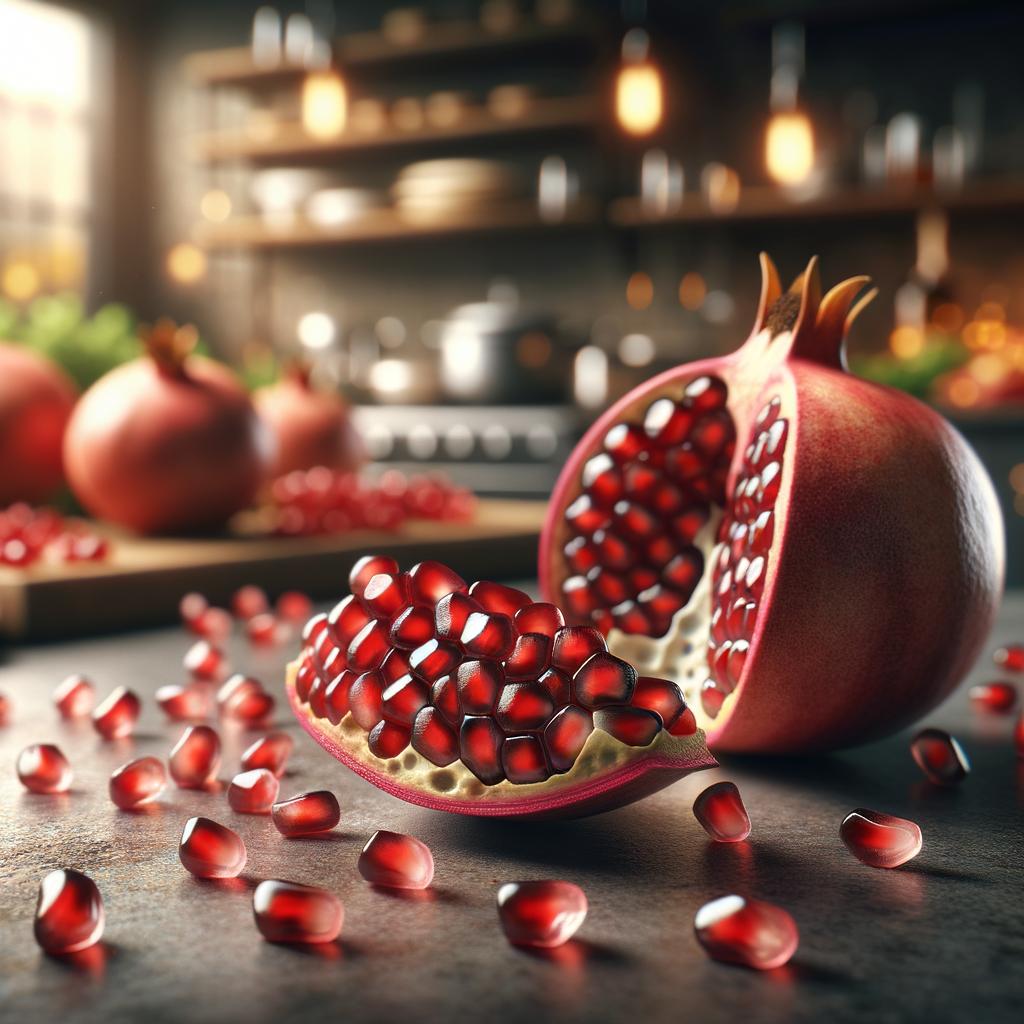Pomegranate Seeds

Description
Pomegranate seeds, also known as arils, are the tiny, ruby-red jewels found inside the tough, spherical shell of the pomegranate fruit. Each seed is encased in a vibrant, juicy pulp that is rich, sweet, and slightly tart, offering a delightful burst of flavor with every bite. The seeds themselves are crunchy with a slightly nutty taste. Pomegranate seeds are unique in the fruit world for their combination of textures and flavors, and their ability to retain their freshness and crunch even when used in cooking.
Primary Uses
Pomegranate seeds are a versatile ingredient that can be used in a variety of culinary applications. They are often used as a garnish in salads, desserts, and cocktails for their vibrant color and unique texture. In the Middle Eastern cuisine, they are a key ingredient in dishes like Fesenjan, a rich, tangy stew made with pomegranate molasses and walnuts. In Indian cuisine, they are used in chaats and pani puris for a sweet-tart punch. The juice from the seeds is also used to make pomegranate molasses, a popular ingredient in Middle Eastern cooking. Beyond the culinary realm, pomegranate seeds have been used in traditional medicine for their high antioxidant content and are often associated with fertility and abundance in various cultures.
History
The pomegranate is one of the oldest known fruits, with a history dating back over 5,000 years. It is native to the region from Iran to Northern India and has been cultivated throughout the Mediterranean since ancient times. The fruit has been featured in many ancient myths and legends, often symbolizing life, death, and rebirth. In Greek mythology, for example, Persephone was said to have eaten pomegranate seeds in the underworld, which bound her to Hades for part of the year, thus explaining the cycle of the seasons. Today, the pomegranate continues to be a beloved fruit worldwide, celebrated for its unique taste and nutritional benefits.
Nutritional Information
Pomegranate seeds are a powerhouse of nutrition. They are rich in fiber, vitamins C and K, and a range of beneficial plant compounds, including punicalagins and punicic acid, which are potent antioxidants. These antioxidants help protect the body against inflammation and free radical damage. They also contain a small amount of protein and are relatively low in calories, making them a healthy choice for those watching their weight. Compared to other fruits, pomegranates have a higher antioxidant capacity, which is mainly found in the peel and the seeds. Regular consumption of pomegranate seeds may help lower blood pressure, fight certain types of cancer, and improve heart health.

